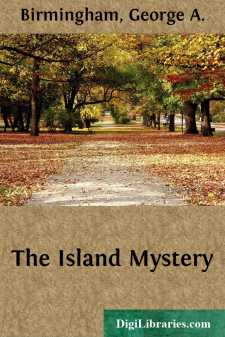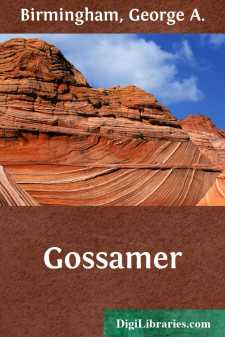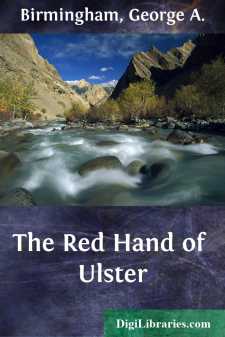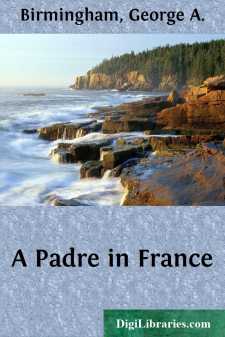Categories
- Antiques & Collectibles 13
- Architecture 36
- Art 48
- Bibles 22
- Biography & Autobiography 813
- Body, Mind & Spirit 142
- Business & Economics 28
- Children's Books 17
- Children's Fiction 14
- Computers 4
- Cooking 94
- Crafts & Hobbies 4
- Drama 346
- Education 46
- Family & Relationships 57
- Fiction 11829
- Games 19
- Gardening 17
- Health & Fitness 34
- History 1377
- House & Home 1
- Humor 147
- Juvenile Fiction 1873
- Juvenile Nonfiction 202
- Language Arts & Disciplines 88
- Law 16
- Literary Collections 686
- Literary Criticism 179
- Mathematics 13
- Medical 41
- Music 40
- Nature 179
- Non-Classifiable 1768
- Performing Arts 7
- Periodicals 1453
- Philosophy 64
- Photography 2
- Poetry 896
- Political Science 203
- Psychology 42
- Reference 154
- Religion 513
- Science 126
- Self-Help 84
- Social Science 81
- Sports & Recreation 34
- Study Aids 3
- Technology & Engineering 59
- Transportation 23
- Travel 463
- True Crime 29
The Island Mystery
Description:
Excerpt
In 1914 there were not twenty men in England who had ever heard of the island of Salissa. Even now—I am writing in the spring of 1917—the public is very badly informed about the events which gave the island a certain importance in the history of the war. A couple of months ago I asked a well-known press-cutting agency to supply me with a complete collection of all references to Salissa which had appeared in our newspapers. I received a single short paragraph from a second-rate society weekly. It ran thus:
“Is it true that our new Minister for Balkan Problems has a curious story to tell about a certain island in the Mediterranean, and is there a lady in the case?”
The Minister referred to is, of course, Sir Bartholomew Bland-Potterton. The island must be Salissa. It is a clear proof, if proof is required, of the efficiency of our press censorship that this should be the only reference to the island in any newspaper in the course of three years. We have blundered a good deal during the war; but it cannot be said of us that we have allowed our press to supply the enemy or any one else with information likely to be of value.
Such knowledge as the public now possesses has come to it, not through newspapers, but by way of gossip. Sir Bartholomew sometimes talks, and the words of a man in his position are repeated in the smoking-rooms of clubs, round tea tables and elsewhere. Unfortunately gossip of this kind is most unreliable. The tendency is to exaggerate the picturesque parts of the story and to misinterpret motives. It is slanderous, for instance, to suggest that Sir Bartholomew was in any way attracted by the lady who bore the title of Queen of Salissa. He never spoke to her or even saw her. His interest in the Salissa affair was that of a patriotic statesman. He told me this himself, yesterday after dinner.
It was Sir Bartholomew who drew my attention to the exhaustive monograph on the Island of Salissa written by Professor Homer Geldes, of Pearmount University, Pa., U.S.A. The book was published ten years ago, but has never been widely read. I am indebted to the professor for the following information.
Salissa is derived by Professor Geldes from a Greek word Psalis, which means an arched viaduct. It is a doubtful piece of etymology, but if it were reliable the name seems appropriate enough. The island, according to the maps published in the book, appears to be a kind of roof supported by the walls of caverns. It is possible that the professor has exaggerated this peculiarity. He was naturally anxious to make good his derivation of the name. But there are certainly many caves under the fields and vineyards of Salissa. There is one excellent natural harbour, a bay, about a mile wide, in the south coast of the island. It is protected from heavy seas by a reef of rock, a natural breakwater, which stretches across and almost blocks the entrance of the bay.
In the chapter on Ethnography I find that the people are of a mixed race. A Salissan, I gather, might boast with equal truth of being a Greek, a Turk, a Slav, or an Italian. His skull is dolichocephalic. His facial angle—but it is better for any one interested in these points to read Professor Geldes’ book for himself. No regular census has ever been made on the island; but in 1907 there were forty-three inhabitants. The number has probably increased since then.
The principal industries are set down, rather grandiloquently, as agriculture and fishing. A small quantity of poor wine is made by the inhabitants for their own use....












